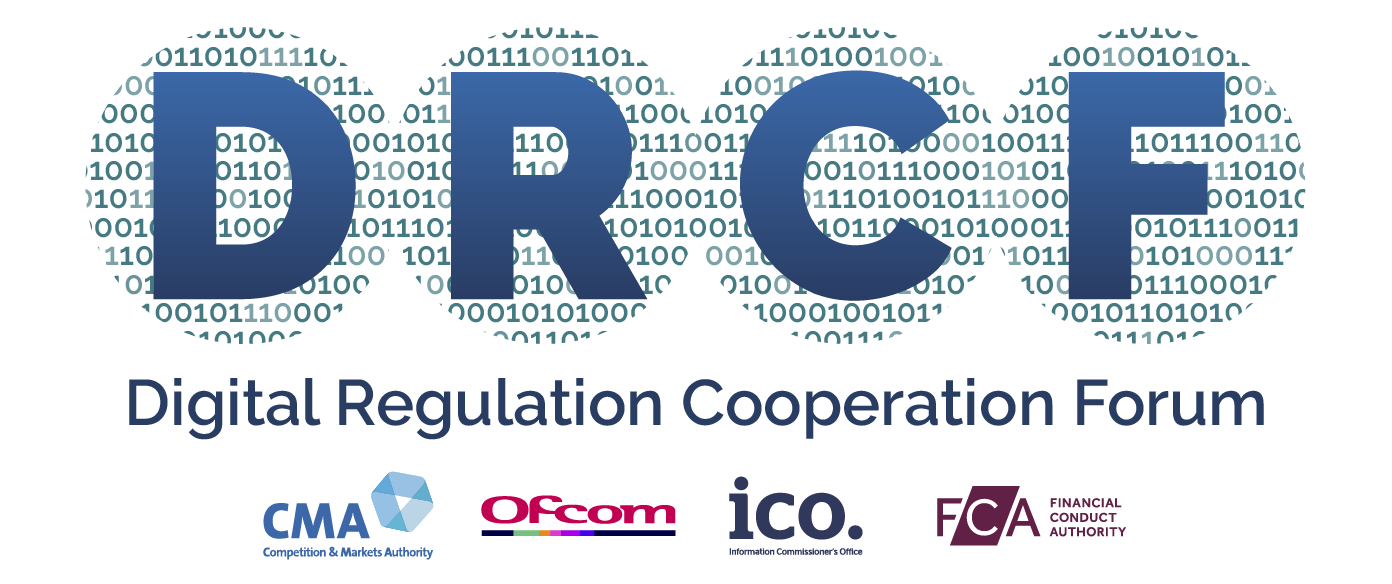WHO WE ARE
The Digital Regulation Cooperation Forum (DRCF) was established as a voluntary forum in 2020. It brings together four UK regulators with responsibilities for digital regulation – the Competition and Markets Authority, the Financial Conduct Authority, the Information Commissioner’s Office and Ofcom.
They recognised that, by working together, they could better respond to the global nature of large digital platforms and the speed at which they innovate. DRCF is a connective tissue between its members: our size enables us to be agile and flexible and ensure our member regulators’ work is not duplicative. In bringing together our members’ respective expertise in regulating digital services, we bring clarity to the regulatory landscape and improve coherence.
As the pioneer in digital regulatory cooperation, the DRCF is seen as a model internationally and we work actively with other countries in considering how to increase collaboration between regulatory authorities. In 2023, we launched the International Network for Digital Regulation Cooperation (INDRC) to link together overseas counterparts and share best practice on effective interdisciplinary cooperation.
OUR VISION
In 2024, the DRCF unveiled a three-year vision in its Workplan, which acknowledges the shared priorities of all our member regulators: to protect and empower people in their use of digital services while unlocking economic growth throughout the UK digital economy.
Our vision demonstrates how we aim to do so, including by driving coherence, supporting innovation and economic growth, preparing for technological change, and supporting our member regulators' capabilities and effectiveness.
Key Documents
HOW WE WORK
Agile and responsive
The DRCF is a voluntary forum. It is not a statutory entity, nor does it have a statutory remit. This enables DRCF member regulators to adopt an agile approach and respond quickly to developments in the tech regulation space. The DRCF does not provide formal advice or direction to member regulators, who remain individually accountable for the delivery of their functions.
The DRCF is resourced and funded equally by the four member regulators. The DRCF consists of a small core team, led by the DRCF CEO, which supports project teams composed of experts drawn from the four regulators. These experts come together to deliver the DRCF’s shared agenda, which is agreed by our member CEOs and set out in the annual workplan, working bilaterally, trilaterally or quadrilaterally as needed.
The DRCF engages extensively with stakeholders to gather inputs and insights to inform its thinking; to amplify project impacts and outcomes, and to support coordination on digital regulation issues. Key stakeholders include academia, industry and civil society. We also meet regularly with Government and Parliamentarians.
The DRCF works closely with domestic regulators outside its membership. We share knowledge and best practice on digital issues through quarterly roundtables with other UK regulators, and involve other regulators in specific areas of work that cross economic remits, such as AI. We meet frequently with international agencies to share knowledge and have established an international community of regulatory authorities with similar approaches to cooperating on digital regulation.




